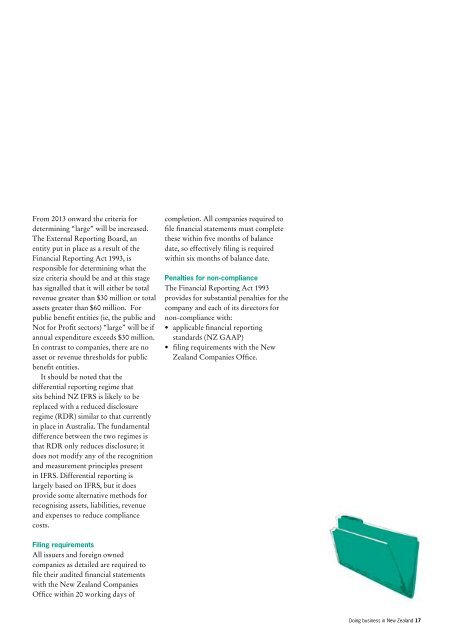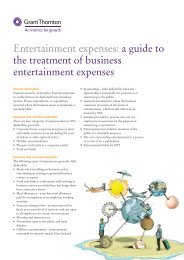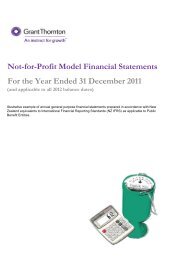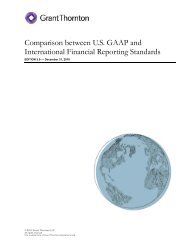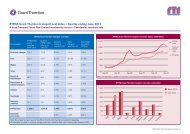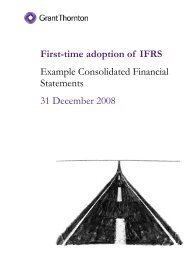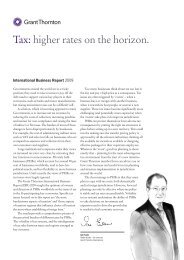Doing business in New Zealand - Grant Thornton
Doing business in New Zealand - Grant Thornton
Doing business in New Zealand - Grant Thornton
Create successful ePaper yourself
Turn your PDF publications into a flip-book with our unique Google optimized e-Paper software.
From 2013 onward the criteria for<br />
determ<strong>in</strong><strong>in</strong>g “large” will be <strong>in</strong>creased.<br />
The External Report<strong>in</strong>g Board, an<br />
entity put <strong>in</strong> place as a result of the<br />
F<strong>in</strong>ancial Report<strong>in</strong>g Act 1993, is<br />
responsible for determ<strong>in</strong><strong>in</strong>g what the<br />
size criteria should be and at this stage<br />
has signalled that it will either be total<br />
revenue greater than $30 million or total<br />
assets greater than $60 million. For<br />
public benefit entities (ie, the public and<br />
Not for Profit sectors) “large” will be if<br />
annual expenditure exceeds $30 million.<br />
In contrast to companies, there are no<br />
asset or revenue thresholds for public<br />
benefit entities.<br />
It should be noted that the<br />
differential report<strong>in</strong>g regime that<br />
sits beh<strong>in</strong>d NZ IFRS is likely to be<br />
replaced with a reduced disclosure<br />
regime (RDR) similar to that currently<br />
<strong>in</strong> place <strong>in</strong> Australia. The fundamental<br />
difference between the two regimes is<br />
that RDR only reduces disclosure; it<br />
does not modify any of the recognition<br />
and measurement pr<strong>in</strong>ciples present<br />
<strong>in</strong> IFRS. Differential report<strong>in</strong>g is<br />
largely based on IFRS, but it does<br />
provide some alternative methods for<br />
recognis<strong>in</strong>g assets, liabilities, revenue<br />
and expenses to reduce compliance<br />
costs.<br />
completion. All companies required to<br />
file f<strong>in</strong>ancial statements must complete<br />
these with<strong>in</strong> five months of balance<br />
date, so effectively fil<strong>in</strong>g is required<br />
with<strong>in</strong> six months of balance date.<br />
Penalties for non-compliance<br />
The F<strong>in</strong>ancial Report<strong>in</strong>g Act 1993<br />
provides for substantial penalties for the<br />
company and each of its directors for<br />
non-compliance with:<br />
• applicable f<strong>in</strong>ancial report<strong>in</strong>g<br />
standards (NZ GAAP)<br />
• fil<strong>in</strong>g requirements with the <strong>New</strong><br />
<strong>Zealand</strong> Companies Office.<br />
Fil<strong>in</strong>g requirements<br />
All issuers and foreign owned<br />
companies as detailed are required to<br />
file their audited f<strong>in</strong>ancial statements<br />
with the <strong>New</strong> <strong>Zealand</strong> Companies<br />
Office with<strong>in</strong> 20 work<strong>in</strong>g days of<br />
<strong>Do<strong>in</strong>g</strong> <strong>bus<strong>in</strong>ess</strong> <strong>in</strong> <strong>New</strong> <strong>Zealand</strong> 17


